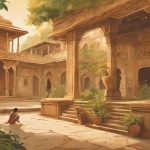As you explore Maori poetry, you'll discover a rich cultural heritage woven from oral traditions, mythological roots, and vibrant storytelling. Whaikorero performances, where skilled orators use voice and gesture to convey emotions, are a revered part of this heritage. Metaphors bridge the tangible and intangible, conveying complex ideas subtly. Maori poetry preserves history and mythology, with digital archives safeguarding cultural legacy for future generations. You'll find rhythm and chant integral to Maori verse, with syllable emphasis imparting emotional intensity. And as you immerse yourself in this cultural tapestry, you'll uncover the heartbeat of Maori identity, echoing through the voices of ancestors and the land itself.
Ancient Origins of Maori Poetry
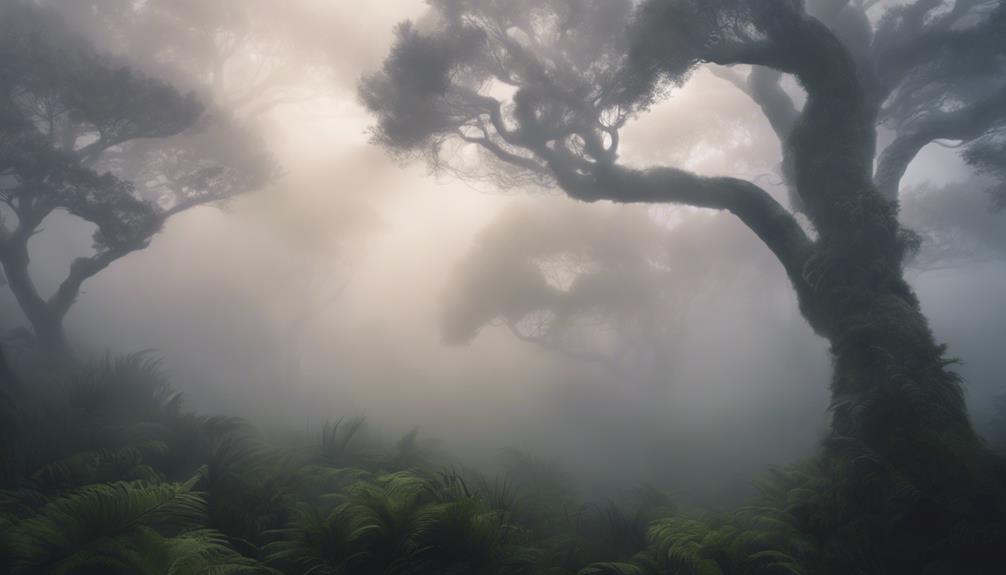
Exploring the rich cultural heritage of New Zealand, you'll find that the ancient origins of Maori poetry are deeply intertwined in the oral traditions of the indigenous Maori people, whose ancestors brought with them a vibrant cultural identity shaped by their Polynesian roots. The ancient influences of Maori poetry are rooted in their mythological roots, where the gods and goddesses of Maori mythology play a significant role in shaping their cultural narrative. The stories of the demigod Maui, who fished up the North Island and discovered fire, are woven into the fabric of Maori poetry, reflecting the people's deep connection with their land and ancestors. The oral traditions of Maori poetry are a reflection of the rich cultural heritage of the Maori people, who have preserved their history, myths, and legends through generations of storytelling. As you explore the world of Maori poetry, you'll discover a unique blend of ancient influences, mythological roots, and cultural identity that continues to inspire and captivate audiences today.
The Art of Whaikorero Performance
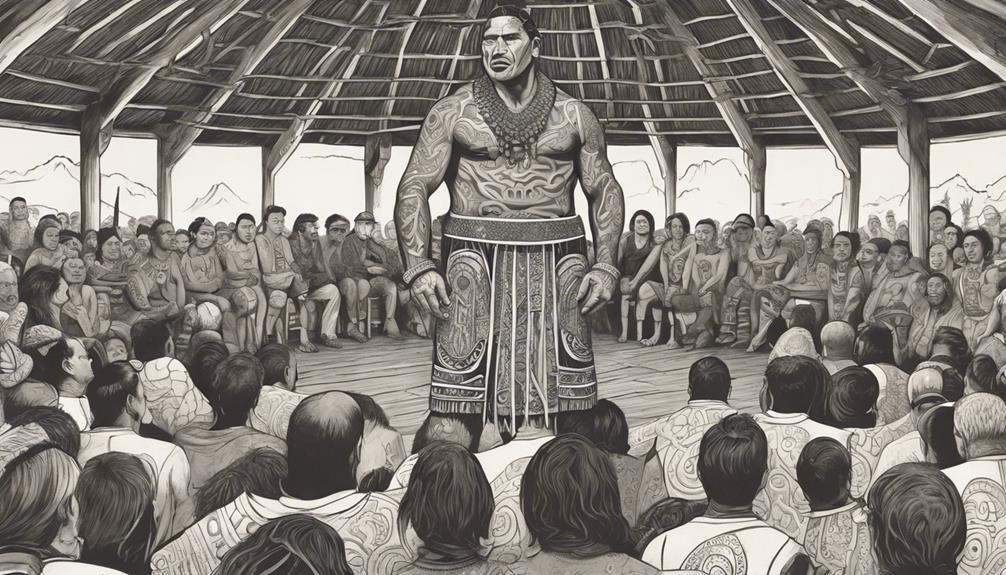
As you explore the world of Maori poetry, you'll find that the art of whaikorero performance is a highly revered tradition, where skilled orators use their voices, gestures, and facial expressions to convey the emotional intensity of the spoken word. In this ancient art form, the orator's presence is paramount, as they weave a tapestry of words, tone, and movement to engage and persuade their audience. Yet, with great respect comes great responsibility, and the weight of cultural protocols can evoke performance anxiety in even the most seasoned performers. The stakes are high, as the orator must balance the need to convey complex emotions and ideas with the risk of misstepping cultural norms. To master whaikorero, one must navigate a delicate tightrope between creative expression and cultural sensitivity. As you investigate further into this rich tradition, you'll discover the intricate dance between orator, audience, and cultural heritage that makes whaikorero a true marvel of Maori poetry.
Storytelling Through Metaphor
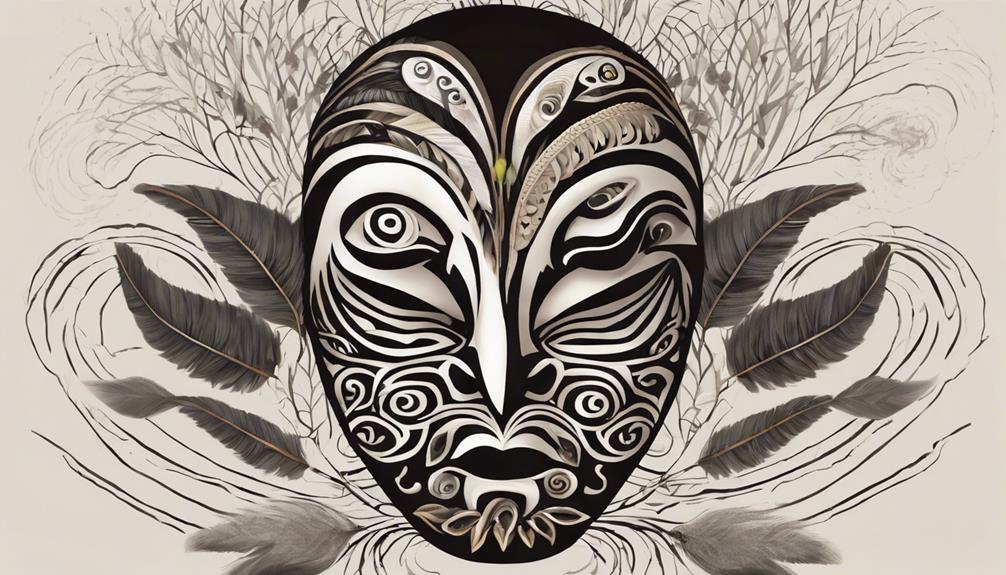
In Maori poetry, you'll find that metaphors serve as a powerful bridge between the tangible and intangible, allowing storytellers to convey complex emotions and ideas in a way that's both subtle and profound. Through the strategic use of symbolic language, Maori poets weave intricate narratives that transport listeners to a domain where the ordinary and mystical coexist. This poetic imagery enables the expression of abstract concepts, making the intangible, tangible.
As you explore further into Maori poetry, you'll discover that metaphors are often woven into the fabric of everyday life. The natural world, with its majestic landscapes and elemental forces, serves as a rich tapestry for storytelling. The poet's task is to distill the essence of this world, using metaphors to convey the emotional resonance of a particular experience or idea. By doing so, Maori poets create a dreamlike quality, where the boundaries between reality and myth blur, and the listener is left to ponder the depths of human emotion.
Preserving History and Mythology
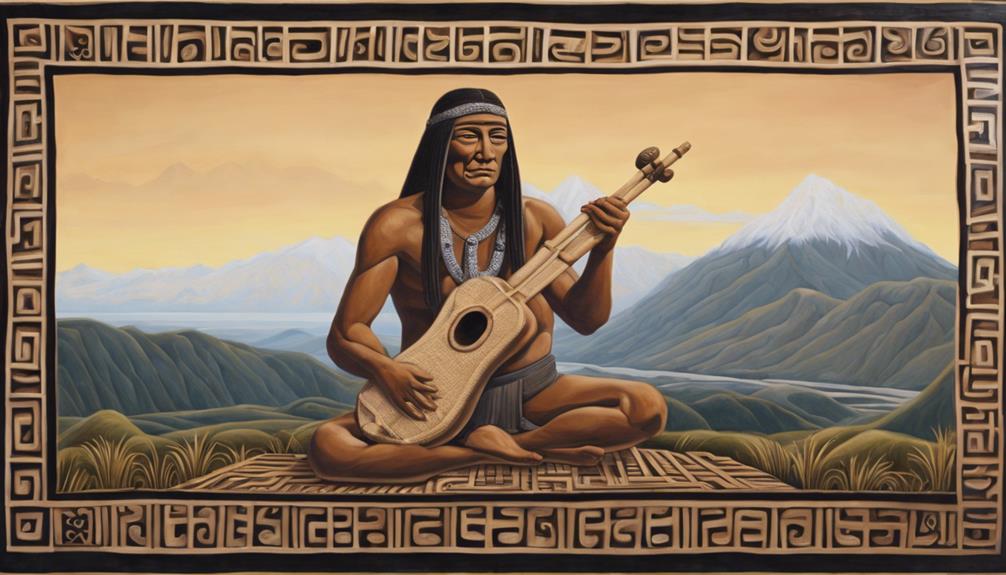
Through the verses of Maori poetry, you're invited to explore a domain where the past and present converge, and the myths of yesteryear are interwoven into the fabric of everyday life, waiting to be unearthed. As you immerse yourself in the rich tapestry of Maori poetry, you'll discover a cultural legacy that's been carefully preserved and passed down through generations. The ancient stories, myths, and legends are not only a reflection of the Maori people's history but also an essential part of their cultural identity.
In today's digital age, the preservation of Maori poetry and mythology has taken on a new form. Digital archives have become an essential tool in safeguarding the cultural heritage of the Maori people. These archives provide a platform for the poetry to be accessed, studied, and appreciated by a wider audience, ensuring that the cultural legacy of the Maori people endures for generations to come. By embracing technology, the Maori people can confidently preserve their history and mythology, allowing their stories to continue inspiring and educating people around the world.
Rhythm and Chant in Maori Verse
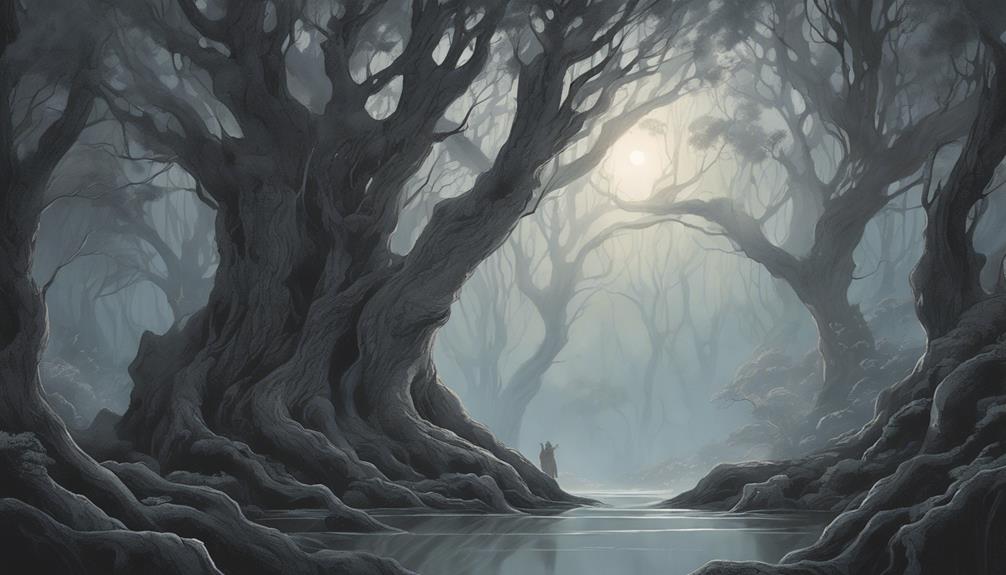
What secrets lie hidden in the rhythmic cadence of Maori poetry, where the beat of the chant echoes the pulse of a rich cultural heritage? As you explore into the world of Maori verse, you'll discover that rhythm and chant are integral to the poetic tradition. The Maori people's oral heritage is deeply rooted in performance, where the spoken word is a powerful tool for storytelling and cultural preservation.
Syllable emphasis plays a vital role in Maori poetry, as it imparts emotional intensity and conveys the speaker's intention. The strategic placement of stress on specific syllables can alter the meaning of a phrase, underscoring the importance of phonological patterns in Maori verse. These patterns, often characterized by a repetitive and rhythmic quality, evoke the ancestral voices that have shaped Maori culture.
As you listen to the rhythmic flow of Maori poetry, you'll begin to sense the intricate web of cultural references and allusions that underpin the language. The chant-like quality of the verse weaves together myth, history, and everyday life, creating a rich tapestry of sound and sense.
Maori Identity Through Poetry
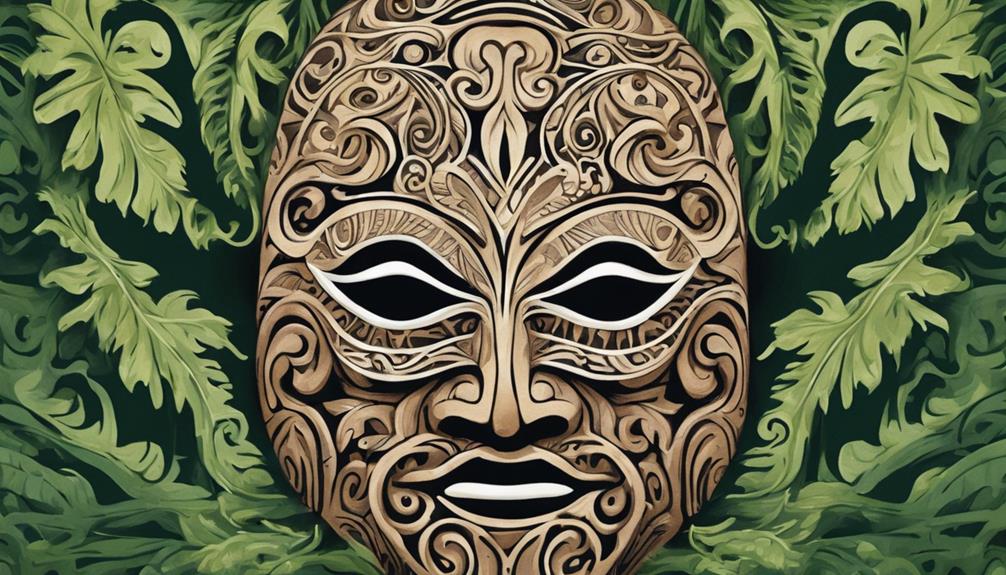
When you explore Maori poetry, you'll find that it's a powerful medium for expressing and exploring one's sense of identity, with the poet's voice serving as a gateway to the collective soul of the Maori people. Through their poetry, Maori writers weave together personal narratives and cultural expression, creating a rich tapestry of identity that's deeply rooted in their heritage. You'll discover how Maori poets draw upon their ancestors' stories, myths, and legends to craft a unique sense of self that's both deeply personal and profoundly collective. By investigating themes of belonging, displacement, and cultural revitalization, Maori poetry becomes a powerful tool for negotiating the complexities of identity in a post-colonial world. As you dig deeper into this world of poetry, you'll find that the Maori voice is not just a reflection of the past, but a vibrant, living expression of the resilience and creativity of the Maori people.
Frequently Asked Questions
Are There Any Modern Maori Poets Who Continue the Traditional Style?
As you venture into the world of modern Maori poetry, you'll discover a Contemporary Revival that's reigniting the flames of tradition. You'll find poets like Keri Hulme, who weaves ancient stories with modern sensibilities, and Robert Sullivan, whose words dance with the rhythm of ancestral voices. This Maori Renaissance is bridging the past and present, as today's poets continue the traditional style, infusing it with fresh perspectives and innovative flair. It's like finding a vinyl record in a vintage shop – a nostalgic nod to the past, yet still spinning with vibrant life.
Can Non-Maori People Learn and Perform Traditional Maori Poetry?
As you consider learning and performing traditional Maori poetry, you'll encounter complex issues. Cultural appropriation is a significant concern, as it's crucial to respect the cultural ownership of this art form. Additionally, language barriers can be a significant obstacle, as Maori language is intricately tied to the culture. You'll need to navigate these challenges with sensitivity and awareness, ensuring that your appreciation for the art form doesn't perpetuate cultural exploitation.
How Does Maori Poetry Differ From Other Forms of Pacific Island Poetry?
As you explore the world of Pacific Island poetry, you'll find that Maori poetry stands out for its unique linguistic nuances. The rich cultural significance of Maori poetry lies in its intricate storytelling, weaving together ancestral myths, historical events, and spiritual beliefs. Unlike other Pacific Island forms, Maori poetry is deeply rooted in its indigenous heritage, with a distinct cadence and rhythmic flow that echoes the heartbeat of the land and its people.
Are There Any Maori Poetry Festivals or Events Open to the Public?
Imagine yourself surrounded by the rhythmic beats of traditional instruments and the vibrant colors of Maori tattoos. Are you ready to immerse yourself in the rich cultural heritage of New Zealand? You're in luck! Maori literature comes alive at cultural festivals like the Auckland Arts Festival, where you can experience the soul-stirring performances of Maori poets. Attend the Wellington International Arts Festival or the Hawke's Bay Arts Festival, and let the powerful words of Maori poetry resonate with you.
Can Maori Poetry Be Translated Into Other Languages Without Losing Meaning?
When you consider translating Maori poetry, you'll encounter a delicate dance between preserving linguistic nuances and conveying the cultural essence. As you navigate the translation process, it's essential to recognize that the essence of Maori poetry lies in its oral tradition, where the spoken word carries the weight of ancestral stories and cultural significance. Will you be able to capture the intricate rhythms, metaphors, and histories embedded in the original text, or will they get lost in translation?

